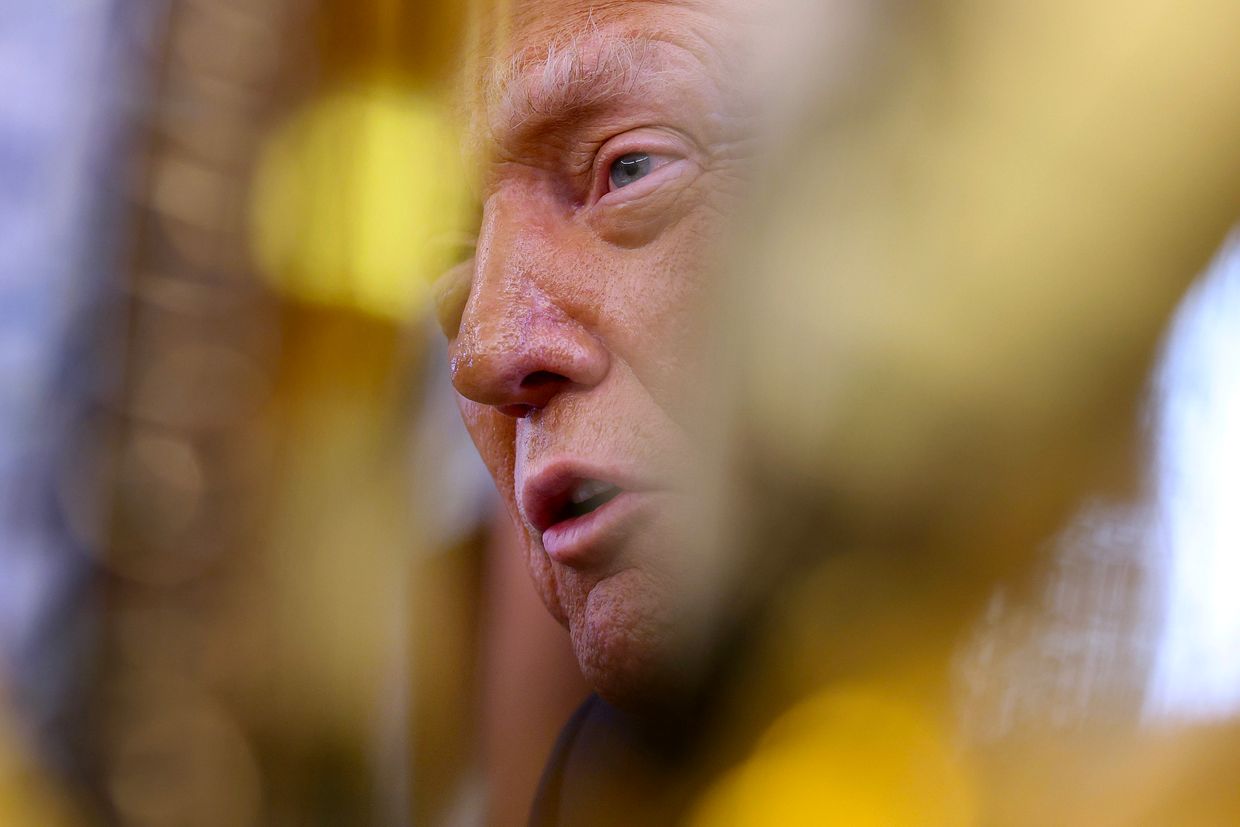
With the beginning of Donald Trump's second time period in workplace, NATO finds itself on shaky floor — reviews that the U.S. president may lower the alliance's funding do little to ease fears.
A leaked White Home memo revealed plans to slash the U.S. State Division funding for the following fiscal 12 months in half, with nearly no cash allotted for the widespread NATO finances.
The cuts would come because the alliance faces its most dire safety problem for the reason that Chilly Struggle, as Russia wages an all-out battle towards Ukraine and slowly units its sights on NATO members.
The transfer would additionally underscore Trump's disregard for transatlantic safety, which is already challenged by reported plans to withdraw some U.S. troops from Europe and relinquish management of European allied command.
However not all is alleged and finished. The U.S. State Division pushed again towards the reviews on funding cuts, implying that the memo was a "suggestion" and reaffirming its dedication to the alliance.
Moreover, the State Division doesn’t carry the U.S. prices for NATO's widespread budgets by itself, sharing the accountability with the Protection Division.
Nor ought to one fall beneath the Trump-induced phantasm that the U.S. pays for many of NATO's operations — Washington pays for roughly one-sixth of NATO's budgets, making it conceivable that different members can plug the entire.
 The Kyiv IndependentKateryna Denisova
The Kyiv IndependentKateryna Denisova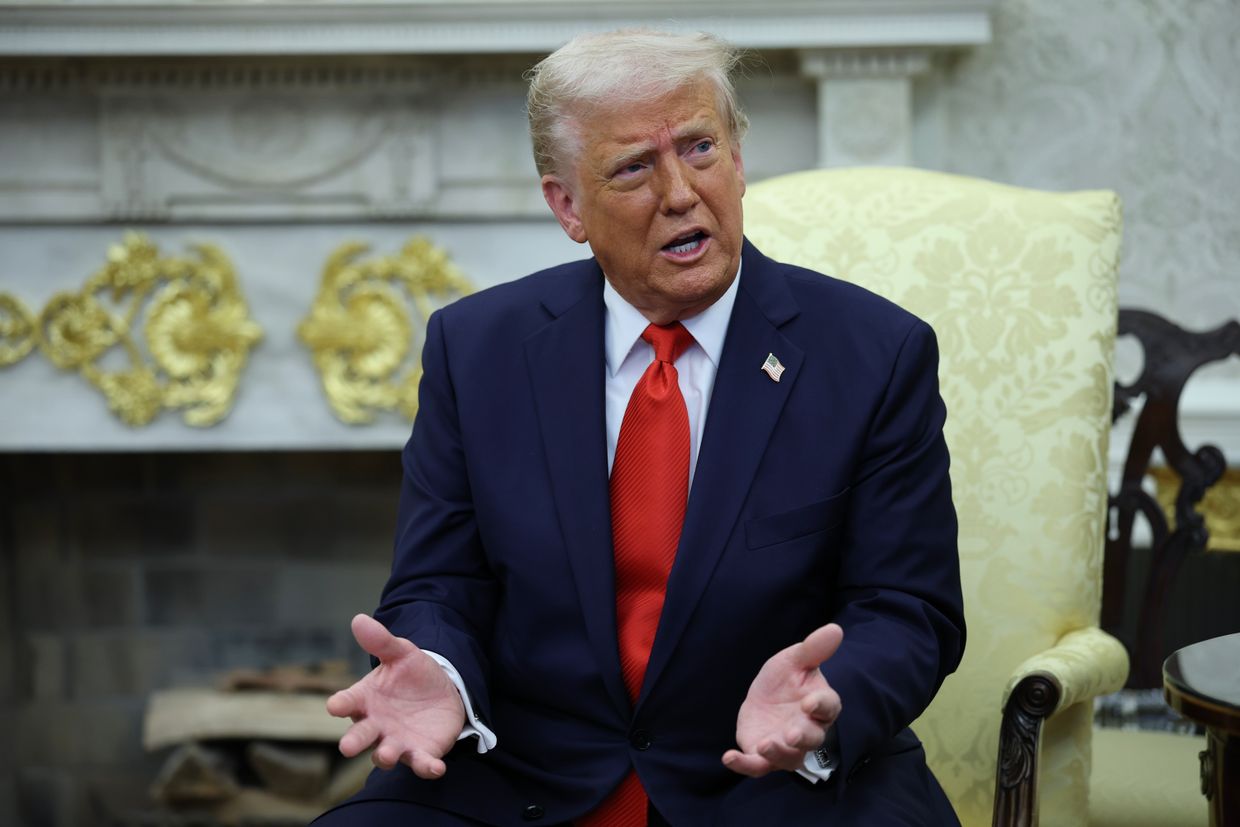
How is NATO funded — and what share does US actually pay
Trump has triggered some confusion concerning the scope of the U.S. contribution to NATO's finances. He as soon as went so far as to say that the U.S. covers 80% of the alliance's funding, a wild overstatement that resembles his false statements on the help despatched to Ukraine.
The U.S. president has usually accused allies of benefiting from the U.S.'s protection spending, presenting their lack of contributions as a "debt" owed to Washington.
Whereas it’s true that the U.S. overspends different NATO allies by a major margin — representing two-thirds of the alliance's total protection spending — this has no relation to direct funding of NATO's budgets.
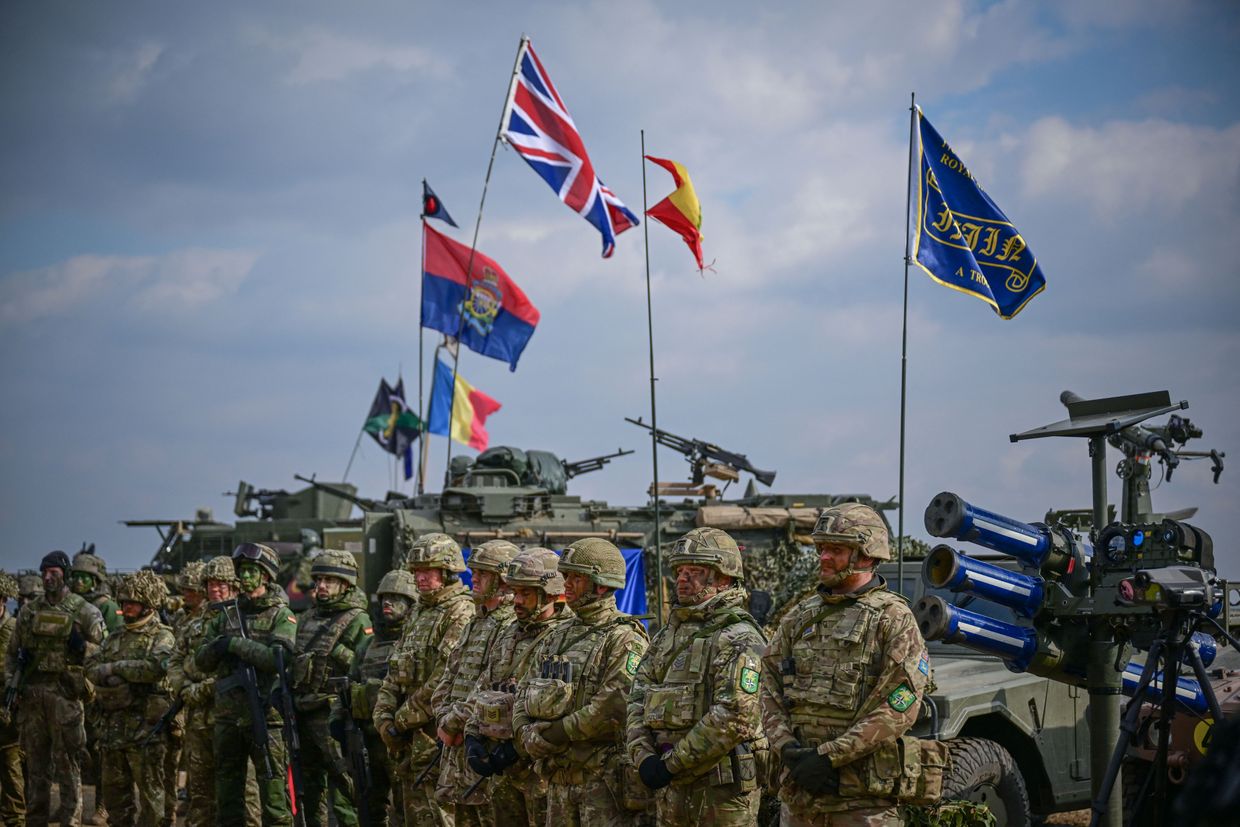
The alliance's day-to-day operations are funded via direct and oblique contributions by its members, calculated by their gross nationwide revenue (GNI). Round $5.2 billion has been allotted for this 12 months's widespread finances, solely about 0.3% of the full allied protection spending.
"Each member contributes to this widespread funding pool primarily based on the scale of their financial system," stated James Goldgeier, professor on the Faculty of Worldwide Service at American College.
"This cash is separate from the funding every nation offers for their very own protection spending, which is what we normally give attention to," the researcher advised the Kyiv Impartial.
The U.S. and Germany shoulder the best portion of NATO's widespread finances — roughly 16% every, or about $830 million in 2025. They’re adopted by the U.Ok. with 11% and France with 10%, whereas the opposite members' contributions are counted in single digits and even under 1%.
The funding is split amongst three budgets. The $550 million civilian finances, which funds NATO Headquarters operations, consultations, and associated prices, seems to be the one threatened by Trump's deliberate State Division cuts.
The civilian finances is generally supported by members' international ministries, whereas protection ministries foot the invoice for the navy finances, together with missions, workouts, command construction operations, and extra.
The NATO Safety Funding Program (NSIP), an funding fund used primarily for the event of widespread amenities and installations, amongst others, can also be funded through nationwide protection budgets.
The Pentagon has not escaped the wide-reaching finances cuts the Trump administration unleashed upon authorities businesses within the identify of price financial savings.
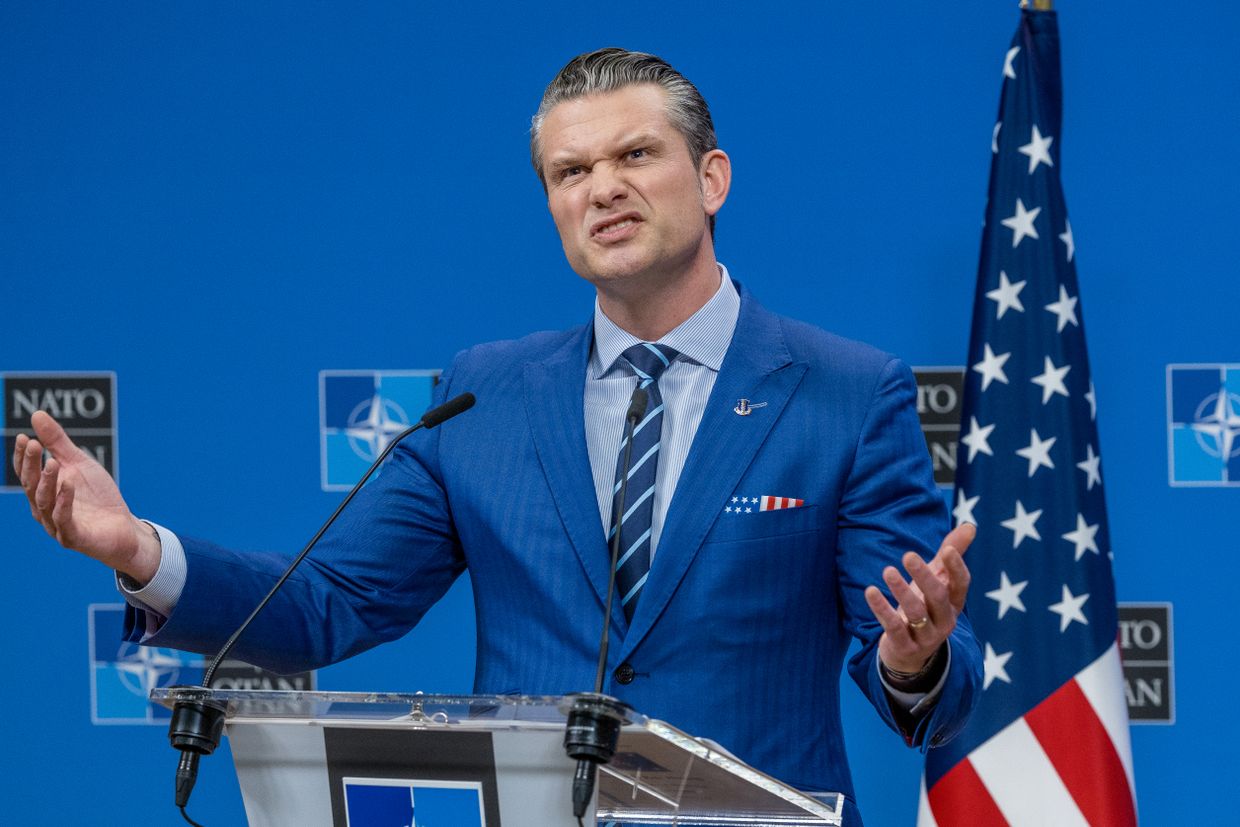
Protection Secretary Pete Hegseth has already taken the axe to supposed "Variety, Fairness, Inclusion" (DEI) tasks, with much more cost-saving measures anticipated sooner or later.
To the general public's data, the Pentagon's NATO funding isn’t on the chopping block — but.
Trump has made no secret about his dislike of NATO, usually criticizing allies for inadequate protection spending.
It was additionally Trump who, in his first time period, negotiated lowered U.S. contributions to the alliance's budgets. When he first took workplace in 2017, the U.S. lined 22% of NATO's operational prices.
European companions should be prepared that the determine could proceed to drop as Washington pivots away from the transatlantic alliance.
 The Kyiv IndependentKatie Marie Davies
The Kyiv IndependentKatie Marie Davies
Warning indicators for Europe
Whereas non-U.S. NATO members would seemingly have the ability to maintain the finances with out Washington's assist, the cuts would sign a lot darker implications.
"The Europeans may fill the hole as a result of these funds aren’t very giant, however a U.S. pullback from this widespread funding can be one more signal that this administration doesn’t view NATO as a typical endeavor of alliance members with a shared function," Goldgeier stated.
In no matter form the cuts could come, they might not occur at a worse second. Russia exhibits no indicators of relenting in its all-out battle towards Ukraine and is already issuing direct threats to NATO's jap members.
The Trump administration is, within the meantime, anticipated to withdraw some 10,000 troops from the alliance's jap flank, signaling that Europe is not its precedence.
Throughout his first official go to to NATO Headquarters on April 3, Secretary of State Marco Rubio — usually seen because the "grownup within the room" inside Trump's crew — sought to reassure the companions that the U.S. has no intention of leaving the alliance.
"President Trump has made clear he helps NATO. We're going to stay in NATO," Rubio stated at a press briefing alongside NATO Secretary Basic Mark Rutte.
He has, nonetheless, repeated Trump's name to extend the NATO protection spending benchmark to five% of GDP, a request in stark distinction to doable cuts to the widespread funding.
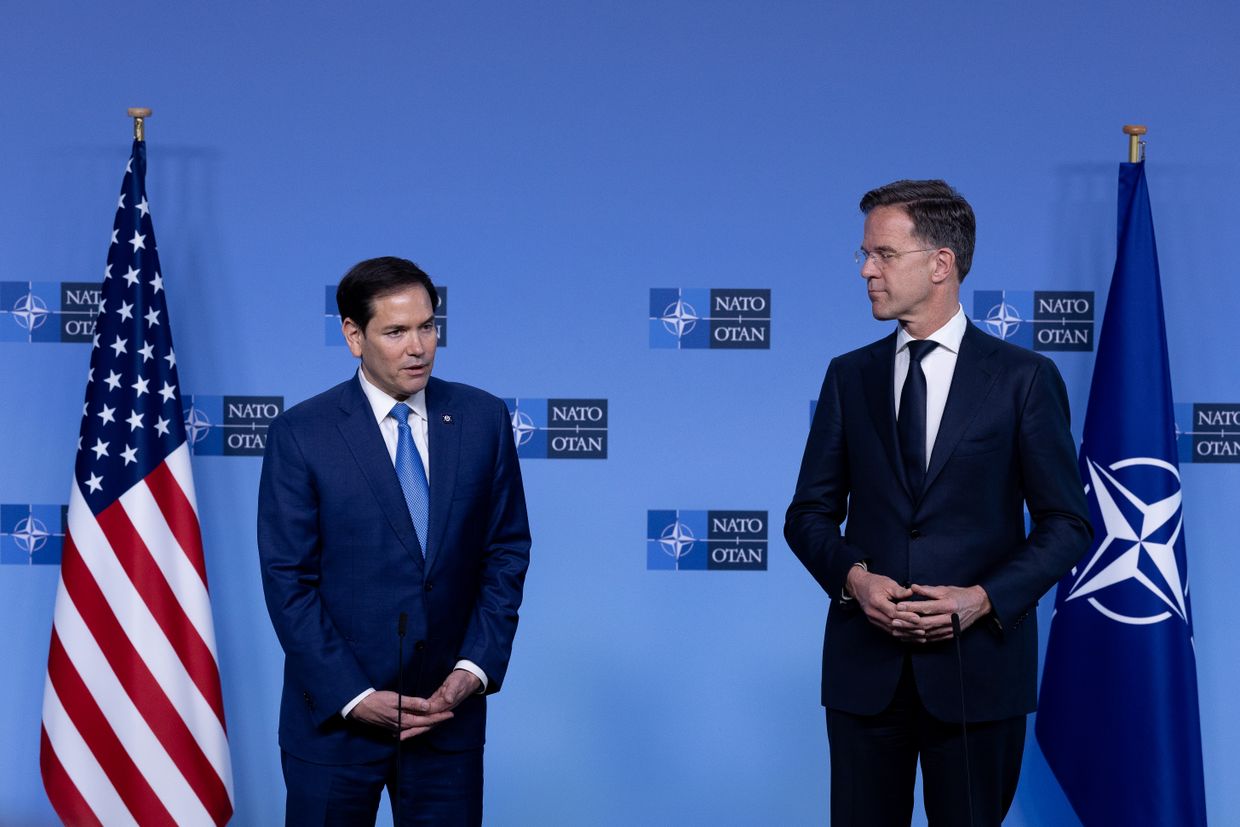
The extra MAGA-aligned U.S. officers are much less restrained. Elon Musk, the world's richest man who now holds unprecedented powers in Washington, brazenly supported an exit from NATO, and a few hardline Republicans even submitted a invoice to just do that.
In December 2023, then-Senator Rubio co-sponsored a invoice that barred the president from unilaterally leaving the alliance with out congressional approval. However even when Trump could discover it troublesome to go away NATO formally, some observers level out that his actions may nonetheless render the alliance de facto irrelevant.
The U.S. president has already instantly challenged the alliance's most sacred cornerstone, the collective protection precept, by saying he wouldn’t defend these members who don’t spend sufficient on their safety.
"It's widespread sense, proper," Trump stated within the Oval Workplace in March. "In the event that they don't pay, I'm not going to defend them. No, I'm not going to defend them."
The Europeans received the memo.
"The West as we knew it not exists," European Fee President Ursula von der Leyen stated in April amid the more and more strained relations between the 2 sides of the Atlantic.
Underscoring the altering occasions, Friedrich Merz, the soon-to-be German chancellor, and a religious Atlanticist, declared proper upon his election victory that his aim was "to strengthen Europe as rapidly as doable in order that, step-by-step, we are able to actually obtain independence from the U.S."
 The Kyiv IndependentKateryna Denisova
The Kyiv IndependentKateryna Denisova